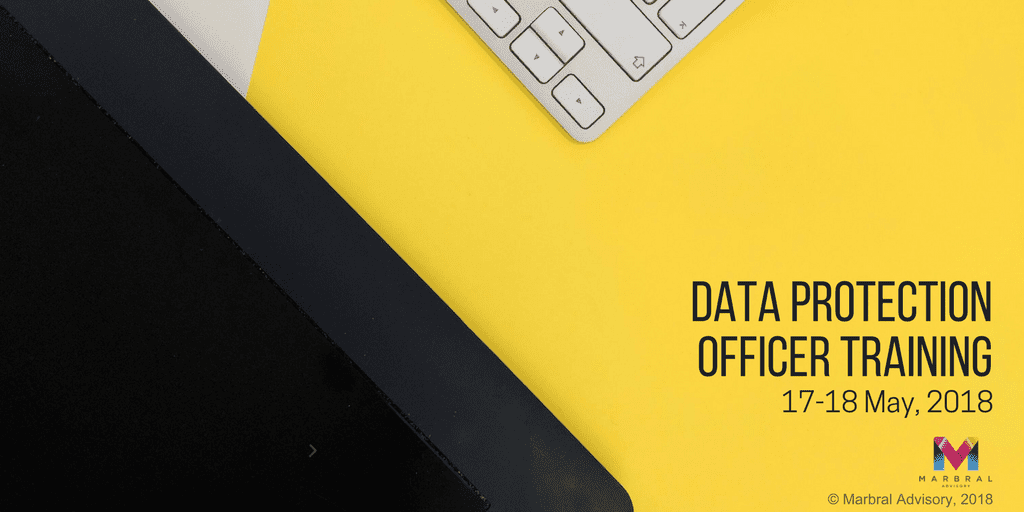
As the GDPR fast approaches, you may be asking the burning question, ‘does my organisation need a DPO?’. Marbral has created not only a quick tool that tells you in minutes if you need a DPO but supplies you with a statement for your accountability record. If the results tell you, you do need to appoint a DPO, we’ve got the training covered too.
Talk of the GDPR is everywhere. Under the regulation, depending on the amount and type of data you process, you may be obliged to appoint a data protection officer. Yet, who do you have in mind? Are they already a full-fledged DPO, capable of managing and supporting the wider team with all data protection requirements, or is this a new role?
Before we delve into what it means to be a DPO, you may be asking yourself, "Does my organisation actually need a DPO?" Take a quick moment and answer our quick survey, which can help you determine if appointing a DPO would be beneficial under the GDPR and best practice for your organisation.
TIP: Take a screenshot of the results page and store this as part of your accountability record.
Click here to take the survey.
If the above survey suggests you should appoint a DPO, you must now consider who would be the best person to fit the role. Our recent blog on 'Where does the Data Protection Officer sit within the organisation' is good reading too and will help guide you on resourcing the best person for the job
Is the what, why and how are a little unclear?
If you are the chosen one, appointed to the (new) role of Data Protection Officer, it can feel a little daunting in terms of what you should be doing (in addition to your regular day job). You may be pleased to learn, we recently introduced a Data Protection Officer training course, designed especially for those new to the role of DPO. This two-day course, delivered through class-based learning at a central venue in St. Helier, Jersey is led by our dedicated GDPR Training trainer, Pete Sanders.
What will I learn?
The course includes learning about the role of the DPO and risk management. As a DPO, it will be your responsibility to ensure your people are aware of data protection best practice and employ this in their day-to-day work. As such, you'll likely be responsible for delivering training courses on the subject (or at least liaising with your L&D or HR team to support this). Within the course, you will learn how to plan and conduct training courses for greatest effect.The second day begins with a personal data audit, so you can learn how to identify what data, its type and where and how it is stored in your organisation. A great first step in measuring the value and importance of your data against the GDPR.As a DPO you will also need to know and understand cybersecurity. The course, covers:
- Technology and IT security
- People and process security
- Physical security
Click here to visit our DPO Training page and book.
If you are the chosen one, appointed to the (new) role of Data Protection Officer, it can feel a little daunting in terms of what you should be doing (in addition to your regular day job). You may be pleased to learn, we recently introduced a Data Protection Officer training course, designed especially for those new to the role of DPO. This two-day course, delivered through class-based learning at a central venue in St. Helier, Jersey is led by our dedicated GDPR Training trainer, Pete Sanders.
What will I learn?
The course includes learning about the role of the DPO and risk management. As a DPO, it will be your responsibility to ensure your people are aware of data protection best practice and employ this in their day-to-day work. As such, you'll likely be responsible for delivering training courses on the subject (or at least liaising with your L&D or HR team to support this). Within the course, you will learn how to plan and conduct training courses for greatest effect.The second day begins with a personal data audit, so you can learn how to identify what data, its type and where and how it is stored in your organisation. A great first step in measuring the value and importance of your data against the GDPR.As a DPO you will also need to know and understand cybersecurity. The course, covers:
Technology and IT security
People and process security
Physical security
Click here to visit our DPO Training page and book.



